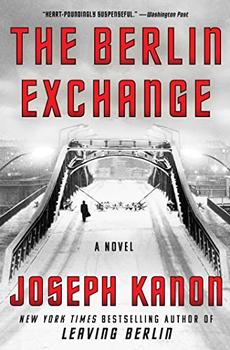Summary | Excerpt | Reviews | Beyond the book | Read-Alikes | Genres & Themes | Author Bio

A John Russell Thriller
by David DowningWWII has ended… But the danger has just begun for a spy caught between political superpowers.
Paris, November 1945. John Russell is walking home along the banks of the Seine on a cold and misty evening when Soviet agent Yevgeny Shchepkin falls into step alongside him. Shchepkin tells Russell that the American intelligence will soon be asking him to undertake some low grade espionage on their behalf - assessing the strains between different sections of the German Communist Party - and that Shchepkin's own bosses in Moscow want him to accept the task and pass his findings on to them. He adds that refusal will put Russell's livelihood and life at risk, but that once he has accepted it, he'll find himself even further entangled in the Soviet net. It's a lose-lose situation.
Shchepkin admits that his own survival now depends on his ability to utilize Russell. The only way out for the two of them is to make a deal with the Americans. If they can come up with something the Americans want or need badly enough, then perhaps Russell will be forgiven for handing German atomic secrets over to Moscow and Shchepkin might be offered the sort of sanctuary that also safeguards the lives of his wife and daughter in Moscow. Every decision Russell makes now is a dangerous one.
This is not a heartening look at post-war Europe by any means. Nor is it a reassuring view of war, period. And at times characterization and plot take a back seat to setting the scene of the abject devastation of people's lives, friends, family and homes. So, has Downing written a novel or an anti-war polemic? Maybe it is a little of each. For many of us, recent wars have waged nearly invisible damage on our everyday lives; perhaps Downing's work is intended to deliver the feel if not the reality close to mind. He succeeds...continued
Full Review
 (801 words)
(801 words)
(Reviewed by Donna Chavez).
Downing's portrait of post-World War II Europe highlights the wrangling that took place between political and economic leaders over who would get domain of which pieces of land, all rendered nearly unrecognizable by bombs. Indeed, history has told us that even during the thickest action of the world war these leaders kept themselves busy strategizing about what kind of post-war Europe would be in each entity's best favor. Thus, once a treaty was signed, all that was left, as they say, was the shouting. But while the dust settled, all was chaos. As freelance journalist Paula Fox writes in her memoir, The Coldest Winter: A Stringer in Liberated Europe (2005):
The cold [in 1946 Warsaw] was so intense that like many others I took to wearing...

If you liked Lehrter Station, try these:

by Robert Seethaler
Published 2025
A vibrant tale of love, companionship, and renewal set against the transformations of 1960s Vienna.

by Joseph Kanon
Published 2023
From "master of the genre" (the Washington Post) Joseph Kanon, an espionage thriller set at the height of the Cold War, when a captured American who has spied for the KGB is swapped by the British and returns to East Berlin needing to know who arranged his release and what they want from him.